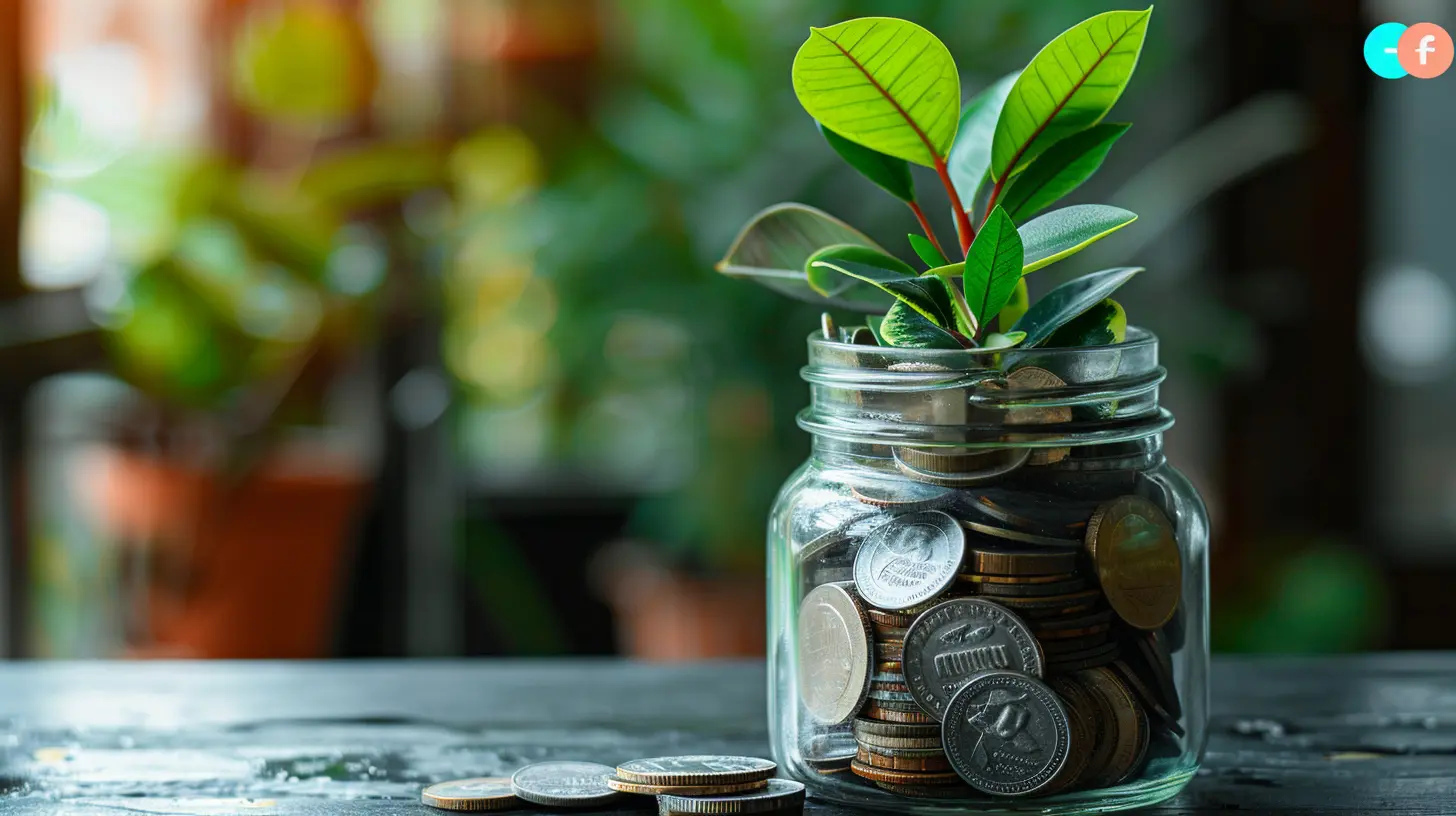The Basics of Lease vs Buy: A Guide for Business Owners
31 July 2025
When you're running a business, every decision feels like a high-stakes game of chess. One wrong move, and your bottom line takes the hit. One of the most common—and often confusing—choices business owners face is whether to lease or buy important assets like vehicles, office equipment, or commercial property. Sounds familiar? You’re not alone.
This guide is here to clear up the fog. We’re breaking down the basics of lease vs buy in plain English, so you can make smart, confident decisions that match your business goals. Whether you're building a startup from your garage or managing an established company, understanding the financial dance between leasing and buying is non-negotiable.
Let’s dive in!
What Does It Mean to Lease?
Let’s start simple. Leasing is basically renting something for a set time. You pay a fixed monthly amount to use an asset, but you don’t actually own it—just like renting an apartment. Once your lease ends, you typically return the asset or have the option to buy it at a reduced price.In a business setting, companies often lease things like:
- Company vehicles
- Office space
- Machinery and equipment
- Technology (e.g., printers, computers, servers)
Here’s the upside: You get to use top-of-the-line stuff without coughing up a massive upfront payment.
What Does It Mean to Buy?
Buying means exactly what you think it means—owning the asset outright. You either pay the full amount upfront or finance it over time with a loan. Once the transaction is complete, the asset is all yours, and you can do whatever you want with it.Businesses most commonly buy:
- Real estate
- Manufacturing equipment
- Fleet vehicles
- IT infrastructure
Buying often comes with long-term value and equity. Think of it like planting a tree in your backyard. It costs more initially, but it grows with you and can even bear fruit down the road.
The Pros and Cons of Leasing vs Buying
Let’s get into the real meat and potatoes. Each option has its own set of benefits and drawbacks. Let’s break it down.Pros of Leasing:
- Lower initial costs: You don’t have to empty your bank account to get started.- Predictable monthly expenses: Easier budgeting with fixed payments.
- Up-to-date equipment: You can upgrade more often, staying ahead of the tech curve.
- Maintenance perks: Some leases include repairs and servicing, which is a nice bonus.
- Tax benefits: Lease payments might be deductible as a business expense (talk to your accountant).
Cons of Leasing:
- You don’t own it: No equity means no resale value at the end.- Long-term cost: You might end up paying more in total over time.
- Contract restrictions: Usage limits or wear-and-tear clauses can be a pain.
- Commitment: Breaking a lease early may come with penalties.
Pros of Buying:
- Full ownership: You gain equity and have complete control.- Cost savings long-term: After the purchase is paid off, the asset keeps serving you without monthly payments.
- No restrictions: Use it however you like—no mileage caps or upgrade rules.
- Depreciation deductions: Business assets can be depreciated on taxes.
Cons of Buying:
- Higher upfront costs: You may need a big chunk of change to start.- Responsibility for maintenance: Repairs, servicing, and replacements are on you.
- Technology becomes obsolete: Some assets lose value or relevance fast.
- Ties up capital: Money spent on assets could be used elsewhere in the business.
See? It’s not about one being better than the other. It’s about what works for your business right now—and a little later down the road too.
Use Case Scenarios: When Should You Lease?
So, when does leasing make the most sense? Here are a few common situations:1. You're Tight on Cash Flow
If your business is still getting off the ground or you're watching every dollar, leasing helps you avoid big upfront investments.2. The Asset Will Be Outdated Soon
Leasing is ideal for assets that evolve rapidly—think tech gear or vehicles. Why buy something that could be a paperweight in three years?3. You Need Tax Deductions
Lease payments can often be written off as business expenses, which can lower your overall tax bill. Not bad, right?4. You Don't Want Maintenance Headaches
Some leases roll in maintenance, so you're off the hook if something breaks down.Use Case Scenarios: When Should You Buy?
Buying isn’t dead—it’s just more strategic. Here’s when it might be the better move.1. You're In It for the Long Haul
If you plan on using the asset for years, you’ll likely save more in the long run by purchasing.2. You Want to Build Equity
Like with real estate, buying helps build ownership and value over time. That’s money in your pocket down the road.3. You Need Full Control
Buying means zero restrictions. You can modify, resell, or completely overhaul the asset if needed.4. Your Business Is Stable and Growing
A healthy cash flow and long-term vision are great signs that your business is ready to buy.Key Financial Considerations
Let’s talk numbers (but not too scary, promise).1. Asset Lifespan
Ask yourself: Will this asset be useful for 3 years or 10? Leasing is great for short-term needs, while buying is better for long-term value.2. Return on Investment
Will owning this asset help you generate income? If it directly contributes to growth, buying is often worth the price.3. Credit and Financing
Leasing might be more accessible if your business has shaky credit, but buying through a loan could help build your business credit profile over time.4. Opportunity Cost
Ever heard of this term? It's what you miss out on by choosing one option over another. For example, if you spend $50,000 buying a piece of equipment, you can’t use that money for marketing or hiring.It’s all about trade-offs.
Hidden Costs to Watch Out For
Whichever route you choose, always look out for the fine print. Here are some common "gotchas":- Leasing: Early termination fees, mileage overage charges, mandatory insurance policies, etc.
- Buying: Interest payments (if financed), property taxes, depreciation, and undisclosed maintenance costs.
Always read the contract and know what you’re on the hook for. A small clause can turn into a big deal later on.
Questions to Ask Before Deciding
Still unsure? Ask yourself these key questions:- How long will I need the asset?
- What’s my budget right now—and six months from now?
- Will the asset help me make money or cut costs?
- What’s the total cost of leasing vs. buying over time?
- Am I okay with not owning something I depend on?
There’s no one-size-fits-all answer, but honest answers to these questions will steer you in the right direction.
A Quick Comparison Table (For The Visual Thinkers)
| Factor | Leasing | Buying ||---------------------|-------------------------------------|-------------------------------------|
| Ownership | No | Yes |
| Upfront Cost | Lower | Higher |
| Monthly Payments | Yes | Optional (if financed) |
| Maintenance | Sometimes included | Your responsibility |
| Asset Upgrades | Easier | Harder |
| Tax Benefits | Lease payments deductible | Depreciation and interest deductible|
| Long-Term Costs | Can be higher | Usually lower |
| Flexibility | More flexible | Less flexible |
Conclusion: What’s Right for You?
At the end of the day, the lease vs buy decision all comes down to your unique business needs. There's no universal answer, and that's okay. Think of leasing and buying as tools in your toolbox. Know when to use which.Leasing is perfect if you need flexibility, want to conserve cash, and don’t mind not owning the item. Buying shines when you're ready for long-term commitment, want control, and are thinking about building value over time.
If you’re still feeling uncertain, it can be super helpful to talk to a financial advisor or your accountant. They’ll help see beyond the numbers and tie your decision directly to your business goals.
Remember this: Every great business decision starts with asking the right questions—and now you’re equipped to do exactly that.
all images in this post were generated using AI tools
Category:
FinanceAuthor:

Remington McClain
Discussion
rate this article
1 comments
Ronan Flores
Lease or buy? Depends—are you feeling adventurous?
September 1, 2025 at 11:52 AM

Remington McClain
Great point! It truly depends on your risk tolerance and business goals.


